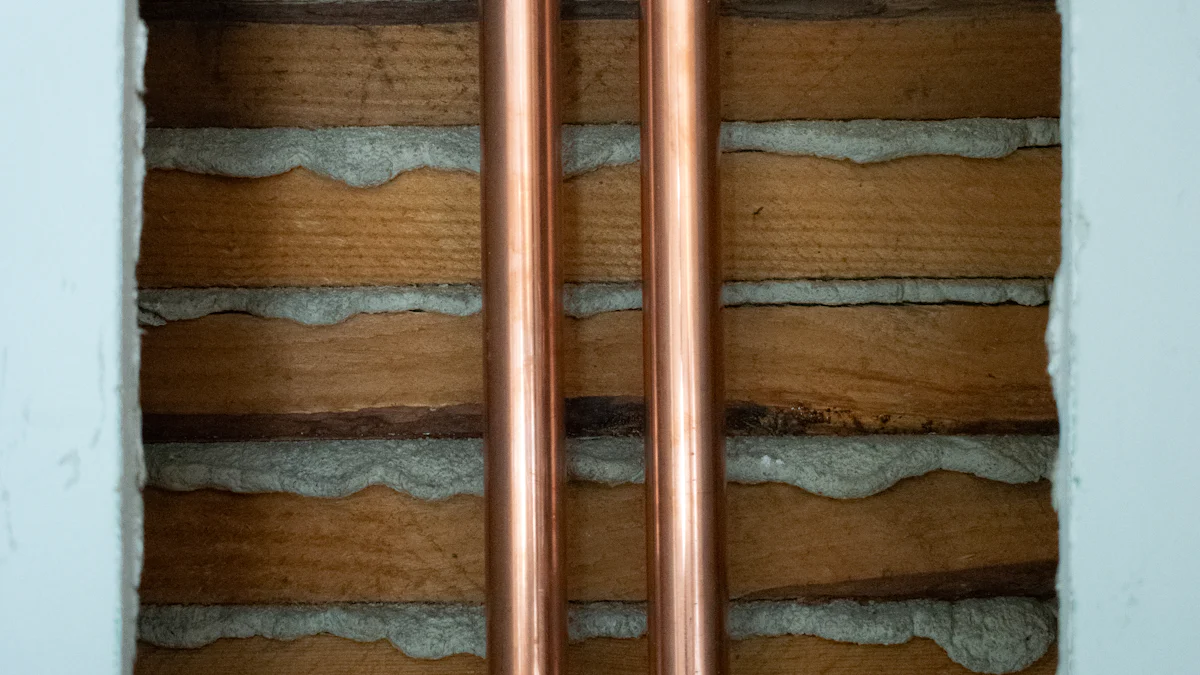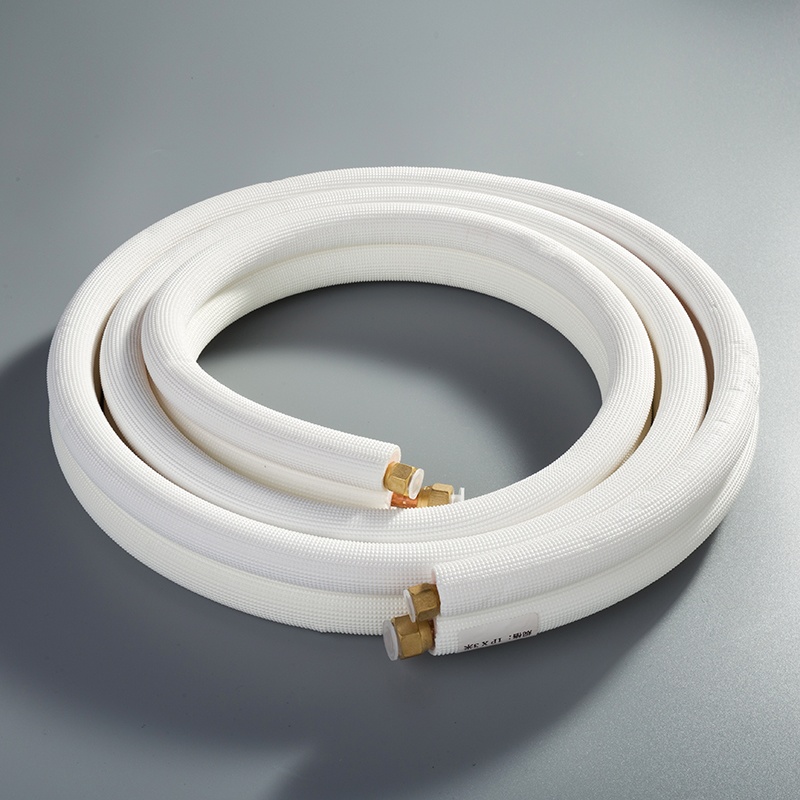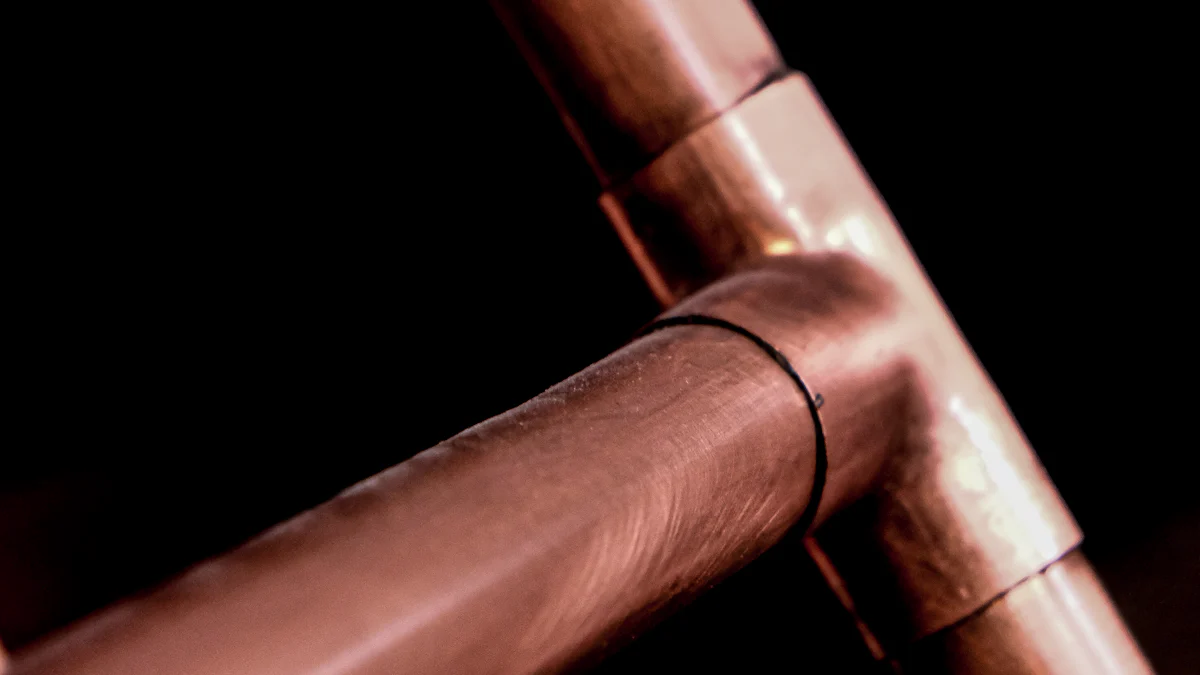Why Thermal Insulation Matters for Copper Pipes in AC Units

Enhancing the efficiency of air conditioning units is paramount in maintaining optimal performance and energy conservation. Write a 'Why' blog post on 'Why Thermal Insulation is Important for Copper Pipes in Air Conditioners. Proper thermal insulation for copper pipes plays a crucial role in achieving these goals. In this blog, we will delve into the significance of insulating copper pipes in AC units and explore the myriad benefits it offers. From controlling condensation to ensuring system longevity, each aspect underscores the importance of this often-overlooked component in air conditioning systems.
Importance of Thermal Insulation

Texas Air Tech, a renowned expert in HVAC services, emphasizes the critical role of insulation in air conditioning systems. Insulation acts as a barrier that regulates the transfer of heat, contributing significantly to energy conservation and system efficiency. By effectively trapping warm air during winter and preventing heat infiltration in summer, insulation reduces the workload on HVAC units, thereby enhancing their performance and lifespan.
In the realm of building construction, the value of proper insulation is often underestimated. It directly impacts energy efficiency and operational costs associated with HVAC systems. As highlighted by Texas Air Tech, neglecting insulation can lead to comfort issues, increased energy bills, and premature wear on HVAC equipment. Therefore, ensuring adequate thermal insulation for copper pipes in air conditioners is paramount for maintaining an optimal indoor climate and sustainable energy usage.
When it comes to thermal insulation for copper pipes in AC units, several key benefits underscore its importance:
Energy Conservation
Reducing Heat Gain: Insulating copper pipes minimizes heat gain within the system, allowing it to operate more efficiently.
Enhancing Efficiency: Proper insulation ensures that the cooling process remains effective without unnecessary energy consumption.
Controlling Condensation
Preventing Moisture Buildup: Insulation safeguards against condensation formation on copper pipes, reducing the risk of water damage.
Ensuring System Longevity: By controlling moisture levels, insulation helps prolong the lifespan of air conditioning components.
Write a 'Why' blog post on 'Why Thermal Insulation is Important for Copper Pipes in Air Conditioners'
Protecting Personnel Safety: Insulated copper pipes prevent accidental contact with hot surfaces, promoting a safe environment.
Maintaining System Performance: By regulating temperature fluctuations, insulation contributes to consistent and reliable AC operation.
Texas Air Tech underscores that an efficient HVAC system goes hand in hand with proper insulation. Whether aiming to enhance comfort levels or reduce operational costs, prioritizing thermal insulation for copper pipes is essential for achieving long-term sustainability in air conditioning applications.
Benefits of Insulating Copper Pipes

Improved Thermal Efficiency
Insulating copper pipes leads to improved thermal efficiency, ensuring that heat absorption and release processes are conducted effectively. By preventing heat loss through the pipes, the system can maintain a consistent temperature, optimizing its overall performance.
Prevention of Water Leaks
One significant benefit of insulating copper pipes is the prevention of water leaks, which can have detrimental effects on property and lead to increased maintenance costs. By creating a barrier that protects against moisture buildup, insulation safeguards both the air conditioning unit and the surrounding environment.
Write a 'Why' blog post on 'Why Thermal Insulation is Important for Copper Pipes in Air Conditioners'
Enhancing system durability is a key advantage of insulating copper pipes in air conditioners. This practice not only ensures optimal operation but also extends the lifespan of the entire system. By prioritizing thermal insulation, users can guarantee long-term efficiency and reliability in their air conditioning units.
Best Practices for Insulation
When it comes to thermal insulation for copper pipes in air conditioning units, selecting the appropriate materials is crucial. Various options are available, including fiberglass, foam board, spray foam, and reflective barriers. Each material offers unique properties that cater to different insulation needs.
Choosing the Right Materials
Types of Insulation: Common options like fiberglass, mineral wool, polystyrene, and polyurethane provide effective thermal protection for copper pipes.
Material Properties: Mineral wool and fiberglass are known for their durability, while aerogel excels in exceptional thermal performance.
Proper installation techniques play a significant role in ensuring the effectiveness of insulation on copper pipes within AC units. It's essential to follow best practices to maximize the benefits of thermal insulation.
Proper Installation Techniques
Ensuring Complete Coverage: Properly insulating every section of the copper pipes helps maintain consistent thermal efficiency.
Avoiding Gaps and Overlaps: Seamless installation without gaps or overlaps prevents heat loss and ensures optimal performance.
Regular maintenance is key to preserving the integrity of the insulation over time. Checking for wear and tear ensures that the insulation continues to provide efficient thermal protection for the copper pipes in air conditioners.
Write a 'Why' blog post on 'Why Thermal Insulation is Important for Copper Pipes in Air Conditioners'
Regular Maintenance: Consistent inspection and upkeep of insulation guarantee long-lasting efficiency.
Inspecting for Wear and Tear: Monitoring the condition of insulation helps identify any issues early on, preventing potential damage.
Insulation plays a vital role in improving energy efficiency by reducing the workload on air conditioning units.
Proper insulation and sealing help maintain consistent indoor temperatures, enhancing overall energy efficiency.
Good insulation preserves the indoor climate by minimizing heat exchange with the external environment.
Insulation acts as a barrier to slow down heat transfer, reducing the need for continuous heating or cooling.
Excellent thermal insulation properties lead to reduced energy consumption and improved system performance.
See Also
Opting for Copper Piping Enhances Air Conditioning Efficiency
Benefits of Selecting Copper Piping for Air Conditioning
Key Advantages of Copper Piping in Air Conditioning Innovation
Maximizing Air Conditioner Efficiency with Copper Pipe Insulation


